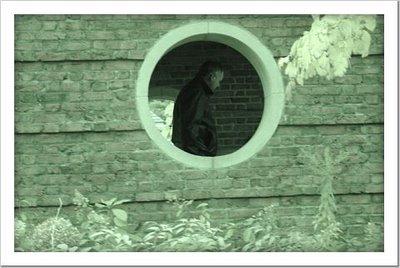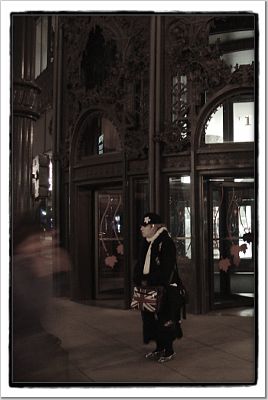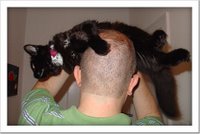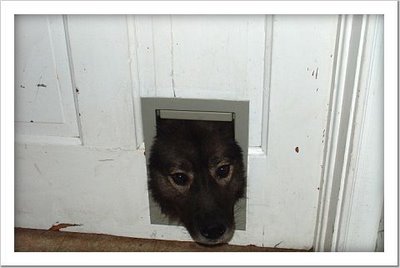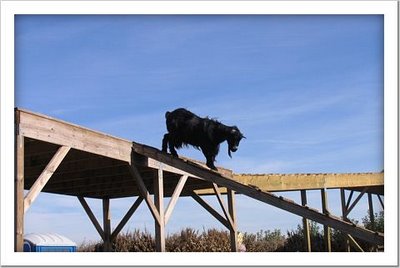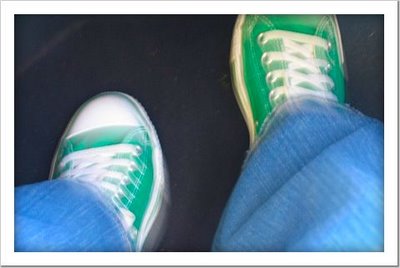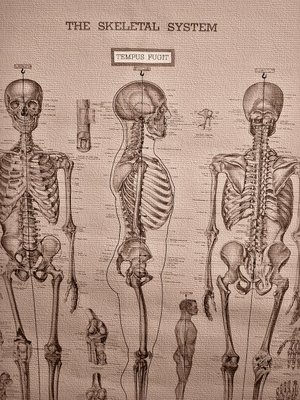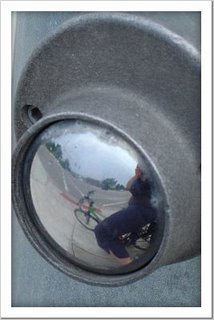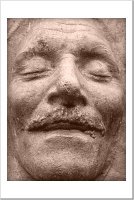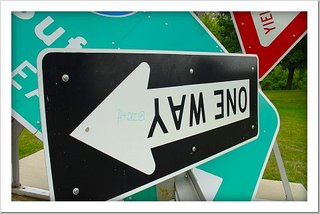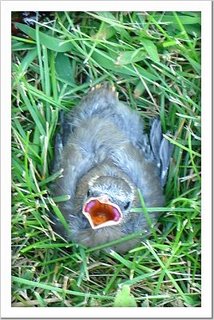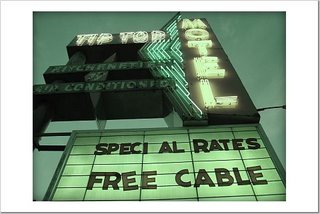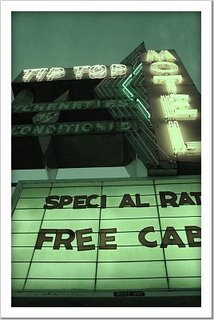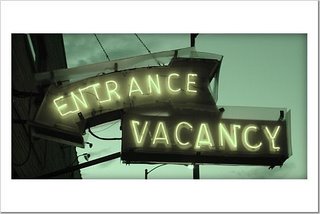It doesn't take a genius to figure out what topic will ripple throughout the blogosphere today...
- Where were you when it happened?
- How were you impacted?
- Are we safer now than we were five years ago?
- What does Iraq have to do with 9/11?
And so on. And so on. And so on...
For now, I'm only interested in addressing those questions insofar as they relate to my experience yesterday morning. I was driving Washington to the airport — he was flying out of one of the biggest cities in the U.S. and
into our nation's capitol. Suffice it to say he was originally set to fly into D.C. on the 11th, but opted to go a day early... in part to avoid the unease that comes with travel on that day. In part because he has friends in D.C. that afforded him a reasonable excuse to go a day early.
And while I find us both to be rational people (hold your snickering, please) — the sort who engage in that veritable contradiction of being anti-Bush, anti-war and yet simultaneously supportive of troops — I found it interesting that neither of us were thrilled with the idea of a 9/11 travel date. Did I think there'd be another terrorist attack on the five-year anniversary? Not really. Do I think the next terrorist attack will be a repeat of the last one? Not really. Not to mention, D.C. is possibly even one of the safest places to be today.
But to understand and rationalize these things doesn't necessarily negate inscrutable human response. The expression "fight or flight" comes to mind. I've determined that, as much as we may hate to admit it, the biomechanics of human nature tell us to get the heck out of Dodge long after the dust settles.
It's like that proverbial stove we're told, as children, to
never touch.
"That's
HOT" our parents say to deter any physical impulse. "Don't
TOUCH" And what should happen if curiosity ever gets the best of us, and our little fingers make their way onto the heated surface?
We know to never touch it again. And not so much because our parents told us not to, but because we
understand what happens when we do.
So that's what "hot" means...And while I don't intend to downplay the horrific events of five years ago with such a silly, poorly-composed analogy... I do mean to say that somewhere inside of us, those old parental caveats (nurture) have intermingled with innate response (nature) to create a sensory overload of sorts.
Somehow the wires have crossed. And even as our rational mind determines the stove is turned off... somewhere inside of us, a synapse fires and we wonder: "What if..."
We keep our hands, then, safely at our sides.
But it's also unfair of me to rest all of the blame on unadulterated human nature. From
Milgram's experiments to
Pavlov's, to
Skinner's... human nature is swayed — whether consciously or unconsciously — by external influences.
And these "influences" (television commercials, billboards, political rallies, news programs, etc.) somehow condition us to respond to stimuli in ways that often defy what we think about ourselves.
That's what bothered me yesterday: not the electronic readerboard itself, but rather my immediate response to it.
ORANGE ALERTit said
EXTRA SECURITY IN PLACE. EXPECT DELAYS."Orange Alert," I said. "That's just one level below red."
That's when it hit me: I've often mocked and satirized that frivolous alert system and yet, suddenly, it
meant something to me. And I was ashamed.
"Is that Bert or Ernie?" Washington asked, referring to the icon on my blog.
"I can never remember which is orange, and which is yellow. I know Elmo is red."
- He then slurped down the rest of his coffee, which he couldn't take on the plane.
- He then grabbed his carry-on (free of toiletries) from the trunk, and then his check-in.
- I looked at his shoes, and thought to tell him he should've worn disposable socks.
And then I wondered when on earth all of this would end. The terror alerts. The security increases. The liquid ban, the shoeless scans, the wire taps.
And then I remembered, a month or two ago, driving past a billboard that read "ARE YOU
READY?"
It was a disaster preparedness message, catered specifically towards terrorist activity. Suddenly I felt like I was a character in
Brazil (1985) or even
V for Vendetta (2005). Here I have a government telling me to "be prepared" (i.e. Be afraid. Be very afraid.) all the while recommending I put on a pretty face and go about my business.
Talk about a mixed message. I heard yesterday afternoon that the federal government has spent considerably more money advertising and stumping airport security and this color coded "THREAT LEVEL" system than it has spent actually
improving airport security (I've got to imagine it's considerably less for other potential targets... trains, busses, water supplies, etc).
Which then brings us back to the very beginning. Where was I five years ago today? Do I think we're safer now then we were before?
Five years ago today, I had just moved to the city where two of the planes left. And when I boarded public transportation to make the commute home — some six hours earlier than expected — all of the city was stuffed on to the train with me. Some families. Some students. But mostly business men with their heads down, and their laptops at their side. It was 10 a.m.; everyone was on their way home... and no one said a word. I didn't think I'd ever again experience something as surreal as that.
But as I saw that readerboard at the airport — as I mumbled the words "That's just one level below red" — I realized...
I was wrong.




